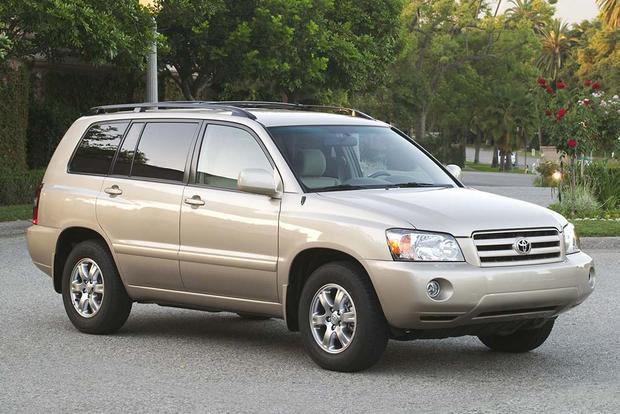Epidemic of Aging: Demographic Crisis Hits Nation's Driveways

Never mind 2020. In the previous decade, Americans purchased more new cars per year than ever before. Roaring out of the recession, U.S. sales volumes ticked upwards year after year, settling above the 17 million marker and staying there for quite some time. Even last year’s haul defied expectations, landing north of that hallowed marker.
It didn’t reverse the increasingly geriatric nature of the country’s fleet, however. American automobiles, on average, have never been older, and they’re now poised to jump rapidly in age.
That’s the conclusion made by IHS Markit, which analyzed ownership data and revealed that the average car plying America’s roadways is 11.9 years old. Remember when the average age ticked above 11? It wasn’t long ago.
The analytics firm claims that one in four cars is now more than 16 years old, which is a testament to the rising quality of modern-day automobiles. Back in the ’90s, one-quarter of cars parked at the grocery store were not Ford Mavericks and Chevy Vegas. Nowadays, that beige 2002 Corolla is still ubiquitous.
As the new-car market cooled off just prior to the pandemic’s arrival, the country’s fleet-wide age was already poised to climb. COVID-19 ensured that scrappage rates declined even further, as buyers, increasingly worried about their financial future (or already laid off) kept what they had.
“At the start of 2020, all signs were pointing to moderate growth of the average age of vehicles through the first half of the decade, and there was certainly growing pessimism about how long the strong economic fundamentals could last,” said Todd Campau, associate director of Aftermarket Solutions at IHS Markit, in a release.
“However, the COVID-19 pandemic has created the perfect storm to accelerate U.S. light vehicle average age in coming years. This should be a positive side effect for the aftermarket, as the majority of repairs for older vehicles come through the aftermarket channel.”
In 2019, scrappage rates were less than that seen in 2009. Thanks to Cash for Clunkers, old vehicles exited the road at a faster clip than in pre-pandemic times; that decade-ago pace now stands to appear breakneck, assuming a similar program isn’t brought into effect in the near term.
IHS Markit predicts that, in a few years, average vehicle age could hit 12.5 years. It’s great news if you own a repair shop, or if you’re thinking of buying in the low end of the used market, as the glut of cars sold in the wake of the recession sink in price.
All that said, it’s not like Americans no longer need wheels. The pandemic hasn’t changed that. In fact, the uncertain virus situation has lent private vehicle ownership an increased importance.
“While work from home policies may continue for some time, there also has been increased reluctance in the use of public transit and ride sharing, and many consumers are opting for road trips instead of air travel for summer vacations,” Campau said. “As a result, vehicle miles traveled (VMT) may not be impacted greatly in the coming years, given the increased personal use to offset everyday commuting.”
[Image: Toyota]

More by Steph Willems
Latest Car Reviews
Read moreLatest Product Reviews
Read moreRecent Comments
- 3SpeedAutomatic Nope....
- Bd2 Looking forward to flooding the rental lots with Hyundai and Kia models, this is just one obstacle now eliminated.
- Kcflyer keep the color. lose the stupid front design. make it reliable, at least as reliable as a base 911. Then and only then is it somewhat worthy of that price.
- FreedMike I'm not sure why anyone would choose this over an A8 or S-class.
- FreedMike I think the manufacturers who are discontinuing affordable small and midsize cars in favor of more expensive crossovers (that are built on the same platforms and use the same mechanicals as said small and midsize cars) may well live to rue that decision. Having said that, though, at least GM is offering decent entry level stuff beyond the Malibu, so good for them.


































Comments
Join the conversation
I’ve got my eye on a Lincoln Corsair. Lots of bells and whistles, small turbo 4 cylinder, but shutter at the $40k plus price tag. Decided to keep the the 8 yr old Escape with Wal-Mart chafe on the doors. As long as the A/C and radio work, I’m happy
Not a bad idea to drive an older vehicles that is not as fancy. After having enough money how much more do you need if you have a nice home, decent clothes, enough food, and the ability to be able to afford most things. If you vehicle is safe, reliable, and looks good then why do you need anything else unless you just want something. Cars have become less important to me as I have gotten older.